
Evaluating evidence of mechanisms in medicine :principles and procedures
This book is the first to develop explicit methods for evaluating evidence of mechanisms in the field of medicine. It explains why it can be important to make this evidence explicit, and describes …
- Edisi
- -
- ISBN/ISSN
- 9783319946108
- Deskripsi Fisik
- xviii, 125p. : ill.
- Judul Seri
- -
- No. Panggil
- 610.1 EVA e
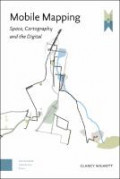
Mobile mapping :space, cartography and the digital
This book argues for a theory of mobile mapping, a situated and spatial approach towards researching how everyday digital mobile media practices are bound up in global systems of knowledge and powe…
- Edisi
- -
- ISBN/ISSN
- 9789048535217
- Deskripsi Fisik
- 348 p.
- Judul Seri
- -
- No. Panggil
- 526 WIL m
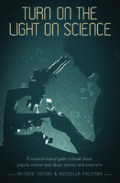
Turn on the light on science:a research-based guide to break down popular ste…
"Scientists deserve public recognition. The ways that they are depicted, however, are severely limited in physical and personal traits, helping to establish and enhance stereotypes under the genera…
- Edisi
- -
- ISBN/ISSN
- 9781911529057
- Deskripsi Fisik
- xvi, 104p.: ill.
- Judul Seri
- -
- No. Panggil
- 530.092 TIN t
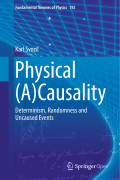
Physical (A)Causality :determinism, randomness and uncaused events
This book addresses the physical phenomenon of events that seem to occur spontaneously and without any known cause. These are to be contrasted with events that happen in a (pre-)determined, predict…
- Edisi
- -
- ISBN/ISSN
- 9783319708157
- Deskripsi Fisik
- xiv, 219p. : ill.
- Judul Seri
- -
- No. Panggil
- 530.01 SVO p

Didaktik and curriculum in ongoing dialogue
Didaktik and Curriculum in Ongoing Dialogue revives the dialogue between the continental European Didaktik tradition and the Anglo-Saxon tradition of curriculum. It highlights important research fi…
- Edisi
- -
- ISBN/ISSN
- 9781003099390
- Deskripsi Fisik
- XV, 261 p.
- Judul Seri
- -
- No. Panggil
- 375.001 DID d
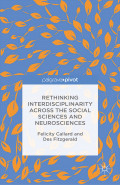
Rethinking interdisciplinarity across the social sciences and neurosciences
This book offers a provocative account of interdisciplinary research across the neurosciences, social sciences and humanities. Setting itself against standard accounts of interdisciplinary 'integra…
- Edisi
- -
- ISBN/ISSN
- 9781137407962
- Deskripsi Fisik
- x, 157p. : ill.
- Judul Seri
- -
- No. Panggil
- 001 CAL r
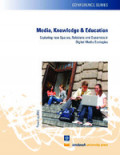
Media, knowledge & education :exploring new spaces, relations and dynamics in…
In recent years, new and established media have penetrated, challenged, and often surpassed in significance traditional institutions of socialization and education. Moreover, the social organizatio…
- Edisi
- -
- ISBN/ISSN
- 9783902571670
- Deskripsi Fisik
- 319 p.
- Judul Seri
- -
- No. Panggil
- 025.5 HUG m
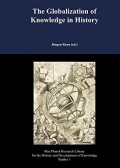
The globalization of knowledge in history :based on the 97th Dahlem Workshop
Today scientific, technological and cultural knowledge is shared worldwide. The extent to which globalized knowledge also existed in the past is an open question and, moreover, a question that is i…
- Edisi
- -
- ISBN/ISSN
- 9783844222388
- Deskripsi Fisik
- 866p. : ill.
- Judul Seri
- -
- No. Panggil
- 001.01 GLO g
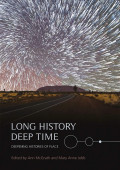
Long history, deep time. Deepening histories of place
The vast shape-shifting continent of Australia enables us to take a long view of history. We consider ways to cross the great divide between the deep past and the present. Australia’s human past …
- Edisi
- -
- ISBN/ISSN
- 9781925022520
- Deskripsi Fisik
- 241 p.; 22 cm.
- Judul Seri
- -
- No. Panggil
- 994.0049915 LON l
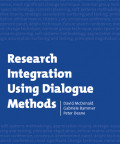
Research integration using dialogue methods
Research on real-world problems—like restoration of wetlands, the needs of the elderly, effective disaster response and the future of the airline industry—requires expert knowledge from a range…
- Edisi
- -
- ISBN/ISSN
- 9781921536755
- Deskripsi Fisik
- ix, 165p. : ill.
- Judul Seri
- -
- No. Panggil
- 001.4 MCD r


 Karya Umum
Karya Umum  Filsafat
Filsafat  Agama
Agama  Ilmu-ilmu Sosial
Ilmu-ilmu Sosial  Bahasa
Bahasa  Ilmu-ilmu Murni
Ilmu-ilmu Murni  Ilmu-ilmu Terapan
Ilmu-ilmu Terapan  Kesenian, Hiburan, dan Olahraga
Kesenian, Hiburan, dan Olahraga  Kesusastraan
Kesusastraan  Geografi dan Sejarah
Geografi dan Sejarah